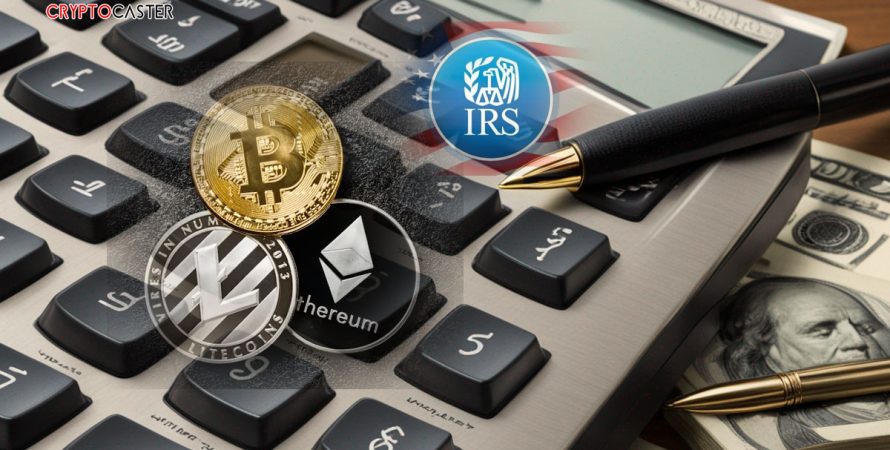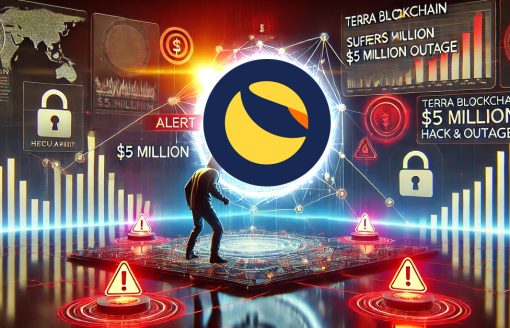- U.S. senators looking into the taxation of digital assets are being given an explanation of crypto staking by Polygon Labs using the analogy of an apple orchard.
- It also believes that stake rewards ought to be taxed similarly to oil and gas.
In response to a request for opinions on the taxation of digital assets, Polygon Labs
Stay in the know on crypto by frequently visiting Crypto News Today
In the letter, Rebecca Rettig, chief legal officer at Polygon Labs, posed the following scenario: “Assume a group of farmers stumble upon an apple orchard on ownerless property.” They consent to alternate plucking apples. Each farmer is expected to put up the first 32 apples they pick in order to prevent cheating. These apples are cast into a river if they cheat.
The example continued, “Over time, each of the farmers starts selling some of their apples, creating a market price for them. “Even though a system is thus created from the combination of each farmer’s actions, taxes are not levied on the farmers until the apples are sold. On their freshly printed tokens, stakers should be treated similarly.
CryptoCaster Quick Check:
According to the letter, Polygon Labs believes that potential profits from staking need to be taxed when tokens are sold rather than as they are accrued. It stated in the letter dated September 8 that failing to do so may lead to excessive taxes, noting what it claimed was a long-standing precedent in the US of not treating exercising dominion and control over property for which there is no previous owner as a tax event.
In July, Senators Crapo and Wyden called for feedback on how to tax digital assets and requested responses by last week from interested parties. They claimed that the Internal Revenue Code of 1986 does not clearly define digital assets.
The lawmakers stated in a statement in July that “this uncertainty creates complex reporting issues for taxpayers, and warrants examining how the IRC can provide clearer guidance for taxpayers on the treatment of digital asset transactions.”
Other organizations, including as the Tax Policy Center, the Coin Center, and the Crypto Council for Innovation, also sent letters to Senators Wyden and Crapo. The Senate Finance Committee, which oversees the Treasury Department, is chaired by both senators.
Minerals, gas, and oil
According to Polygon Labs’ Rettig, taxpayers who extract minerals, gas, or oil are not subject to taxes until they sell the land. “They are not taxed on animal breeding until the animals are sold. They do not pay taxes on the harvested crops until they are sold. The same principle applies when taxpayers produce commodities, bake scones, sign documents, or otherwise take possession of property that has never been owned before.
Advertisement
Follow GappyCoin PreSale on Twitter, and ReCap for information and more.
Polygon Labs further stated that newly created tokens that belong to stakers shouldn’t be treated as income for tax purposes because they were produced by software. It further stated that staking rewards can only be used if a validator unstakes them and that the administratively simplest course of action would be to tax staking rewards only upon disposition.
The letter added, “Tax policy should not favor one product type over another.” In this early stage of blockchain development, taxing staking rewards as they are credited to validators runs the danger of accomplishing just that without significantly raising tax collections.![]()
If this article brought you clarity, insight, or value—support the work that made it possible.
At CryptoCaster, we report on Web3, crypto markets, and institutional finance with no billionaire owners, no shareholders, and no hidden agenda. While mainstream media bends toward Elon Musk, BlackRock, and JPMorgan narratives, we stay focused on what matters: truth, transparency, and the public interest.
We don’t just cover the headlines—we investigate the power structures behind them. From FTX and Ripple to the quiet push for CBDCs, we bring fearless reporting that isn’t filtered by corporate interests.
CryptoCaster is 100% paywall-free. Always has been. To keep it that way, we depend on readers like you.
If you believe independent crypto journalism matters, please contribute—starting at just $1 in Bitcoin or Ether. Wallet addresses are below.
Your support keeps us free, bold, and accountable to no one but you.
Thank you,
Kristin Steinbeck
Editor, CryptoCaster
Please Read Essential Disclaimer Information Here.
© 2024 Crypto Caster provides information. CryptoCaster.world does not provide investment advice. Do your research before taking a market position on the purchase of cryptocurrency and other asset classes. Past performance of any asset is not indicative of future results. All rights reserved.
Contribute to CryptoCaster℠ Via Metamask or favorite wallet. Send Coin/Token to Addresses Provided Below.
Thank you!
BTC – bc1qgdnd752esyl4jv6nhz3ypuzwa6wav9wuzaeg9g
ETH – 0x7D8D76E60bFF59c5295Aa1b39D651f6735D6413D
CRYPTOCASTER HEATMAP






